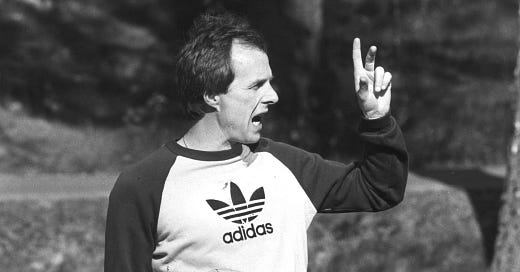In case I die tomorrow
Have you ever wondered how you'd like to be remembered when your time comes?
Eriksson's journey in football has been remarkable. Born in 1948 in Sunne, Sweden, he transitioned from a modest playing career to becoming one of the most respected managers in the sport.
His achievements span Europe, including league and cup doubles in three countries. In 2001, he broke new ground as the first non-English manager of the England national team, leading them to two World Cup quarter-finals.
Now, facing his own mortality due to pancreatic cancer, Eriksson has shared these touching words:
"I had a good life. I think we are all scared of the day when we die, but life is about death as well. You have to learn to accept it for what it is. Hopefully, at the end, people will say, yeah, he was a good man, but everyone will not say that. I hope you will remember me as a positive guy trying to do everything he could. Don't be sorry; smile. Thank you for everything, coaches, players, and crowds; it's been fantastic. Take care of yourself and take care of your life. And live it. Bye."
As I ponder these words, I'm struck by the profound lessons they offer.
Eriksson reminds me that life and death are intertwined, challenging me to accept and use this reality as motivation to live more fully. His desire to be remembered as a positive force, someone who gave his all, prompts me to consider my impact on others.
I'm particularly moved by Eriksson's request for smiles instead of sorrow. Even in the face of terminal illness, he chooses to focus on gratitude and joy. This perspective shift is a powerful reminder to appreciate the good in my life, no matter the circumstances.
His message also underscores the importance of human connections. As I think about the thanks he extends to coaches, players, and crowds, I'm reminded of our impact on each other's lives. It encourages me to nurture my relationships and express appreciation for those who have touched my life.
Perhaps most importantly, Eriksson's parting advice—"Take care of yourself and take care of your life. And live it."—serves as a powerful call to action. It urges me to prioritise self-care, cherish my life, and live fully and authentically. This simple yet profound advice encourages me to make the most of my time, pursue my passions, and create a life I can look back on with satisfaction.
As I absorb Eriksson's message, I find myself deeply introspective.
Am I living my life in a way that aligns with these lessons? Am I accepting life's realities, maintaining a positive attitude, expressing gratitude, nurturing my relationships, and truly living my life to the fullest?
In the end, Eriksson's farewell isn't just about how he wants to be remembered; it's a reminder of the legacy we all leave behind. It challenges me to consider my own impact, not in terms of achievements or accolades, but in the positive influence I have on others and the fullness with which I embrace life itself.
Through his words, I am encouraged to live so that when my time comes, I can look back with gratitude, forward with acceptance, and depart with a smile.
And if I die tomorrow, I hope that you remember me through the last lines that I am sending you and say that he was "a positive guy trying to do everything he could do."



